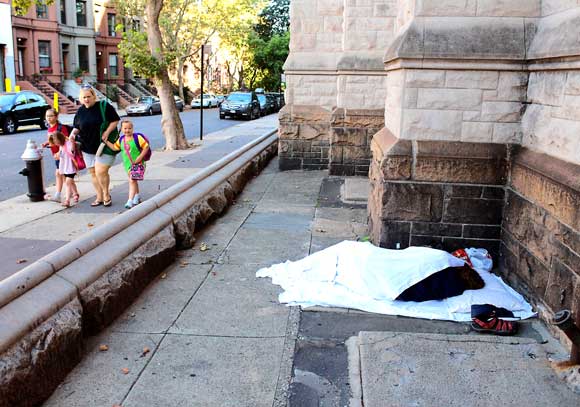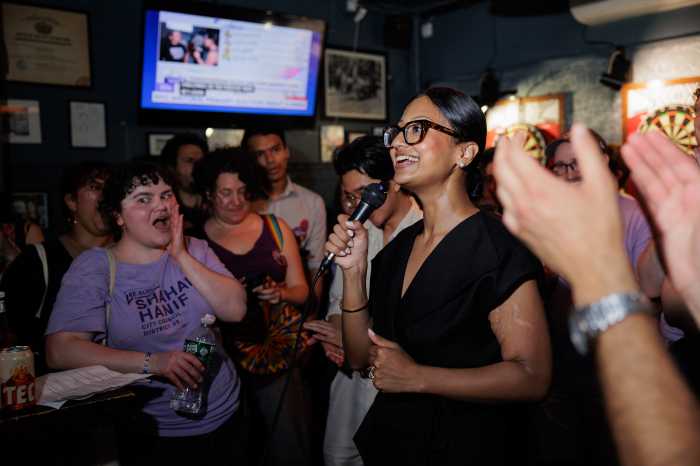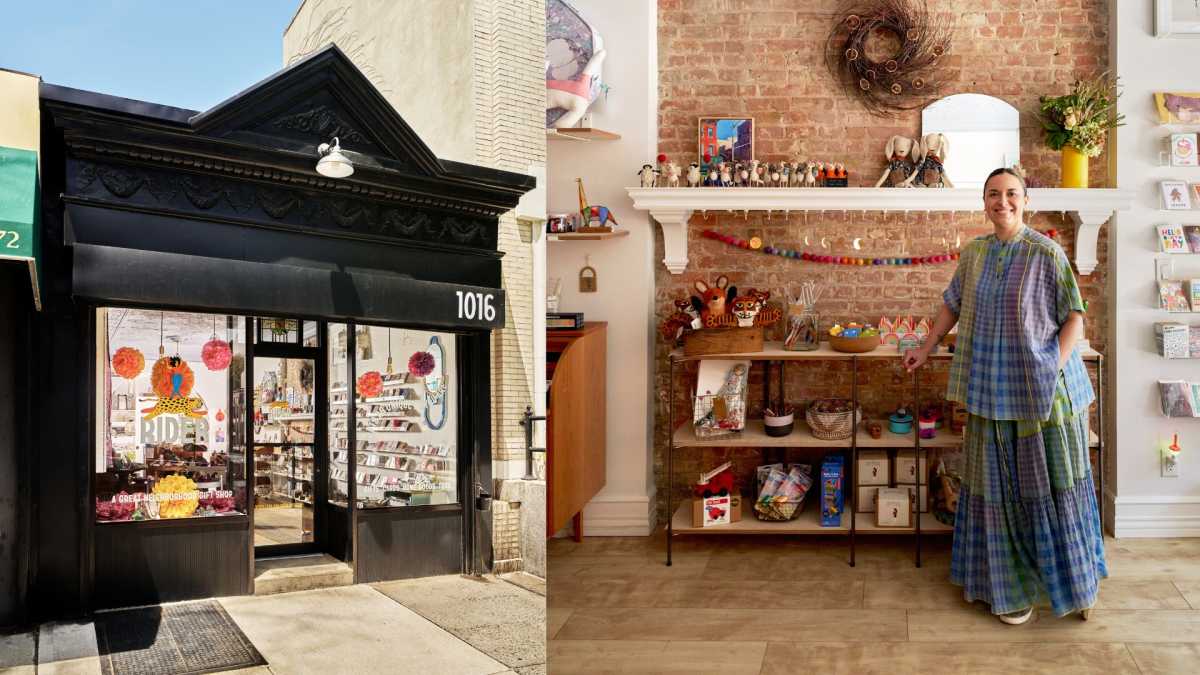Call it the undercover homeless shelter.
Park Slope’s Old First Reformed Church has quietly begun providing beds and showers to homeless men after allowing them to sleep in front of the Seventh Avenue church for years.
Rev. Daniel Meeter has long sought a balance between compassion and boundary-setting with the vagrants who sometimes turn his church steps into an encampment. This time, he says, he’ll find that balance through screening and rule-setting.
“These are not ‘street’ homeless guys; they are clean men who are trying to make their lives better,” said Meeter, adding that his clients are men who have recently lost jobs. “We want to help them.”
That’s not what he was saying four years ago after he discovered four homeless men drinking and even hiding a weapon behind a church wall, then angrily tossed out their possessions.
Meeter first tried to help the men — who he said had substance-abuse problems — by offering them food, drug treatment and jobs. He later felt betrayed after they lost control, began urinating, playing loud radio and making comments at passers-by.
It will be different this time, he said, because his shelter-goers must follow a curfew and an “early-to-bed/early-to-rise” regimen and prove to officials they are not dangerous.
The new lodging has some neighbors celebrating Meeter’s social activism while others are worrying about the safety of their kids near the church, which is within three blocks of eight schools and has a summer camp operating inside it.
“It’s nice to help people in need — but the problem is, where are they gonna go during the day?” said Erica Lee, who was walking by the church with her kids. “Are they going to hang around and drink in the park?”
Forty-five–year resident Fernando Perez agreed, saying there’s a fine line between turning the church into a shelter and the whole block into a bum hub.
“People don’t want the neighborhood to go down the drain again,” Perez said. “You open something like that and there could be trouble.”
Meeter addressed some of those concerns, saying the program operators won’t tolerate substance abuse and that they opened the shelter not to prevent people from sleeping on the steps — in fact, none of them are former stoop squatters — but to give the ones with a stronger chance of holding down jobs more opportunity.
The church had conversations internally about opening the shelter — but not with the community, in part, because leaders knew it might not go over well.
“We did it out of religious conviction — not to be popular in the community,” Meeter said. “We care more about what God thinks than what neighbors think.”
Indeed, while most of the men are from Brooklyn, only one is from Park Slope — a fact that irks some longtime homeless folks.
“What they doin’ is great, but they should cater more to the local ‘bums,’ as some people call us,” said Derrick McGlashen, a war vet who sometimes sleeps on the steps.
Meeter said any homeless person can get a bed, as long as he goes to the Drop-in-Center on Atlantic Avenue and goes through the proper procedures.
Meeter also said he was inspired to open the church shelter — which has passed inspections by the city and can skirt some building usage rules because it’s a place of worship — after getting frustrated with the lack of permanent solutions for the neighborhood’s homeless population.
That’s why he contacted Councilman Brad Lander (D–Park Slope), who hooked him up with the Church Avenue Merchants Businesses Association, which offers social services such as employment.
Officials at the agency — which also runs the women’s shelter at the Park Slope Armory — will screen participants to determine whether they are “a risk to themselves or others.”
A spokesman for the association did not return calls inquiring about the screening processes — or if standards would be different from its woman’s shelter on Eighth Avenue, where cops are often called and disturbing scenes frequently play out in public.
Lander apparently doesn’t think the smaller shelter will have the same challenges, voicing support via written statement.
“In such a great neighborhood, in one of the best-off cities on the planet, we have an obligation … to end poverty and homelessness,” he said.
The church will offer 12 rollout beds in a hostel-like setting along with showers and dinner, at the towering stone building at Carroll Street on weekdays through the end of the summer.

























